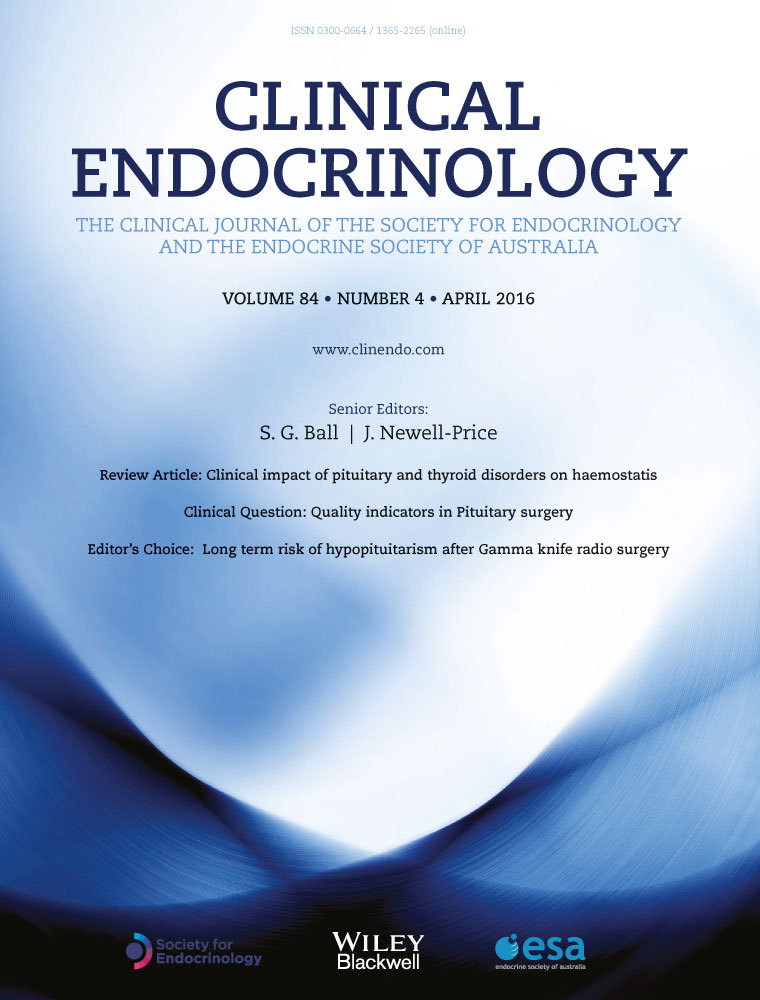Prevalence of coeliac disease in idiopathic hypoparathyroidism and effect of gluten-free diet on calcaemic control
Summary
Background
Patients with idiopathic hypoparathyroidism (IH) require variable doses of calcium and 1-α-(OH)D. The reasons for such variability are not clear. As autoimmune mechanisms may play a role in IH, there is a possibility of coexistent coeliac disease with calcium/vitamin D malabsorption.
Objective
We assessed the prevalence of coeliac disease and antitissue transglutaminase autoantibodies (anti-tTGAbs) in IH and analysed the effect of a gluten-free diet on calcaemic control.
Method
A total of 171 patients with IH and 126 healthy controls were screened for anti-tTGAb. IH patients with anti-tTGAb >20 RU/ml underwent duodenoscopy and intestinal biopsy; those with biopsy-proven coeliac disease were followed up on a gluten-free diet.
Results
Eleven of 171 (6·4%) patients with IH and seven of 126 (5·6%) controls had anti-tTGAb (P = 0·81). There was no difference in the clinical and biochemical parameters at diagnosis and during long-term follow-up of 7·2 ± 4·8 year (mean serum total calcium = 1·88 ± 0·16 vs 1·82 ± 0·36 mmol/l, P = 0·52; phosphorus = 1·81 ± 0·17 vs 1·87 ± 0·36 mmol/l, P = 0·53) in IH patients with and without anti-tTGAb. Although CaSRAb positivity was comparable in the two groups, IH patients with anti-tTGAb had higher TPOAb positivity (45·5% vs 12·8%, P = 0·02). Coeliac disease was diagnosed in only 2/9 patients with IH on biopsy, both of whom showed improved calcaemic control with a gluten-free diet.
Conclusion
The prevalence of coeliac autoimmunity (6·4%) and coeliac disease (1·2%) in patients with IH seems to be similar to that in the general population. Notwithstanding this modest prevalence, it is important to be aware of the potential occurrence of coeliac disease with IH and the beneficial effect of a gluten-free diet on calcium control.




